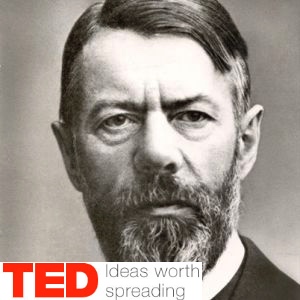 I’ve dedicated a few essays to interrogating encryption and automation as a replacement for human judgement, politics, and inter-personal trust. Central to that argument is the observation that the replacement of institutions with technologies like blockchains are a rehashing of the arguments that set up those failing institutions in the first place. (You can read the full argument here and here.)
I’ve dedicated a few essays to interrogating encryption and automation as a replacement for human judgement, politics, and inter-personal trust. Central to that argument is the observation that the replacement of institutions with technologies like blockchains are a rehashing of the arguments that set up those failing institutions in the first place. (You can read the full argument here and here.)
This is important because the problems with have with our present institutions –how they are exploitable, alienating, or otherwise broken– may very well be exacerbated by these technologies, not solved by them. To drive this point home I have pulled a few excerpts from Max Weber’s writing on bureaucracy but I have replaced a few nouns (in bold) so that his references to human organizations are replaced by algorithms, blockchains, and other technologies. With just these few noun changes a 19th century German sociologist of modern statecraft turns into the next great TED talk:
An algorithm offers above all the optimum possibility for carrying through the principle of specializing administrative functions according to purely objective considerations. Individual tasks are allocated to heuristicfunctions who have specialized training and who by constant practice learn more and more. The ‘objective’ discharge of business primarily means a discharge of business according to calculable rules and ‘without regard for persons.’
Precision, speed, unambiguity, knowledge of the files, continuity, discretion, unity, strict subordination, reduction of friction and of material and personal costs– these are raised to the optimum point with blockchain technology.
The tendency toward secrecy in certain development communities follows their material nature: everywhere that the power interests of the domination structure toward the outside are at stake, whether it is an economic competition of a private enterprise, or a foreign, potentially hostile polity, we find secrecy.
The absolute monarch is powerless opposite the superior knowledge of the crowd–in a certain sense more powerless than any other political head.
And here are the originals:
Bureaucratization offers above all the optimum possibility for carrying through the principle of specializing administrative functions according to purely objective considerations. Individual performances are allocated to functionaries who have specialized training and who by constant practice learn more and more. The ‘objective’ discharge of business primarily means a discharge of business according to calculable rules and ‘without regard for persons.’
Precision, speed, unambiguity, knowledge of the files, continuity, discretion, unity, strict subordination, reduction of friction and of material and personal costs– these are raised to the optimum point in the strictly bureaucratic administration, and especially in its monocratic form.
The tendency toward secrecy in certain administrative fields follows their material nature: everywhere that the power interests of the domination structure toward the outside are at stake, whether it is an economic competition of a private enterprise, or a foreign, potentially hostile polity, we find secrecy.
The absolute monarch is powerless opposite the superior knowledge of the bureaucratic expert–in a certain sense more powerless than any other political head.
